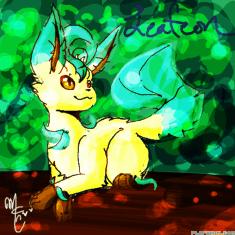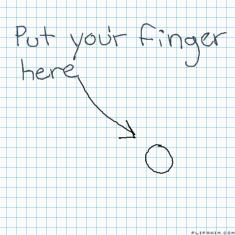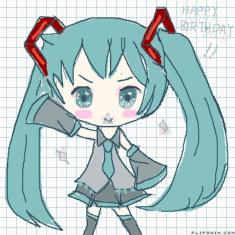@Micromelody only


321 comments

MicroMelody
11.04.2021 18:31
LinkYeet
Bre-Cheese[OP]
11.04.2021 18:37
Linkyeeeee who starts first

MicroMelody
11.04.2021 18:38
LinkI will
Also
What is your opinion on children?
"Mmmmmm"
Bre-Cheese[OP]
11.04.2021 18:42
Linkirl I hate children, but if you mean them having a kid then =w= huehuehue

MicroMelody
11.04.2021 18:46
LinkNo :) mmmmmmmm means tasty
Bre-Cheese[OP]
11.04.2021 19:05
Link*visible confusion* are you eating children?

MicroMelody
11.04.2021 19:16
LinkNo no no XD I was playing Jackbox with my cousins and one of the mini games was Survive the internet
Bre-Cheese[OP]
11.04.2021 20:32
LinkOof

-a month later-
Jeremy: hmmmmmmm *he looks at Alana Phone number and taps the call button, placing the phone up to his ear*
Comment removed
Comment removed
Comment removed
(Persecutors can also be protectors. 0-0" some Persecutors apparently mimic abusive tactics that were used on them to prevent you from being hurt by abusers on the outside. Which are other people.
It's... it's a lot. Did you know there are people out there that try and force kids to develop DID in order for them to be able to control certain alters of yours'? Sick ****s!)
(Opposite gender alters are normally a result of sexual abuse. /m\ sad boi hours.
Also back on Persecutors, they sometimes even purposely abuse or injure the body in order to teach one of the other alters a "lesson". Some of them seem to try and protect you but their methods are really harmful and their logic is really ****ed up.)
(Fun fact: a host can be replaced over the person's lifetime. Crazy stuff.
There are also apparently alters that are will try to "kill" another alter as they don't see the body as there own. This can result in suicide or self harm. Thus isn't even all of them. There are so many.
Did you know some alters can switch roles? These are normally alters created by religious abuse though. Freaking cults. Poor kids.)
(gn, sleep well)
Alana: *she puts her head on the table* hhhhh I'm a horrible person. I should've just ordered something to go or anything. Or maybe I should've reneged on the whole dating idea. *she starts to fidget with her tail, trying not to let her insecurities take over. This obviously not working too well.* ohhh I'm so sorry, I'm ruining all of yours' day. I've been a waste of time. I don't want to bring you all into any physical or psychological danger, yet I keep doing it unintentionally. You know, I could just pay for our food and leave... And I would be out of your way... *she starts to shake a bit, feeling incredibly guilty, feeling like everything is suddenly her fault.*
Elie Wiesel: Survivor
Elie Wiesel was born in 1928 in Transylvania, which was at the time part of Hungary. In 1944, along with the Jews in his community, Wiesel was deported with his family to Auschwitz [beside the narrator will be a series of images, the first of which is here, a photo of Auschwitz.], a concentration camp where thousands of Jews were tortured and eventually killed at the hands of the Nazis. In all, his mother, father, and one of his three sisters perished in the Holocaust.
[A photo of unnumbered shoes taken from millions of people before they were exterminated] Over eleven million people lost their lives during the twelve years of the Holocaust. Families were destroyed, and lives were shattered. Living through these horrific experiences inevitably had a powerful effect on Wiesel. After the war, he studied in France and became a journalist. For ten years after the war, he did not discuss his experiences of the Holocaust, until eventually a friend persuaded him to commit them to writing.
This fictionalized memoir was published as Night and became respected worldwide as one of the foremost accounts of the Holocaust. Since becoming a public figure, Wiesel has written many books and accounts of his [sand and gravel and the word “Auschwitz”] experiences in the Holocaust. He has also devoted much of his life to publicly remembering the millions of Holocaust victims and protesting genocide around the world.
In 1986, the Nobel Committee awarded the Nobel Peace Prize to Elie Wiesel, declaring that he, with "his message and through his practical work in the cause of peace, is a convincing spokesman for the view of mankind and for the unlimited humanitarianism which are at all times necessary for a lasting and just peace."
Wiesel has become a powerful spokesperson about the horrors of the Holocaust and for the survivors [a metal pin reading, “Holocaust survivor,” surrounded by the cast image of barbed wire] who have lived through such atrocities. We can see through Wiesel's powerful novel how personal experiences can have an incredibly powerful impact on literature, shaping the author's purpose and message.
Despair and Authenticity
When World War I erupted in 1914, the major powers of Europe expected the fighting would last only a few months. As events unfolded, it became clear that neither side would achieve a quick victory. [World War I photo of a soldier on a tank] The war dragged on for four years, resulting in horrific death and destruction.
[World War II airplanes flying in formation] Less than twenty years after World War I ended, Europe started on the path toward a second global conflict, one that would prove to be even more destructive than the previous war [World War II memorial, the Atlantic Pavilion Pillars]. In addition to the millions of military and civilian casualties, World War II’s death toll included an estimated six million European Jews, approximately two-thirds of Europe’s Jewish population.
The mass murder of European Jews and other groups of people by the Nazis and their collaborators during World War II has become known as the Holocaust. [Nazi death camp] Many of the people died at the Nazi death camps that had been established at Auschwitz, Treblinka, and other locations. Much of the horror and brutality of the camps did not become known to the world [map of Europe, pointing out Treblinka and Auschwitz] until Allied forces liberated the camps in 1945.
After the devastation of the two world wars and the moral crises provoked by the Holocaust, many people became consumed by the question, “What is the point? Is there a God or higher purpose guiding humanity? If so, how could such horrors as World Wars I and II and the Holocaust have occurred?”






